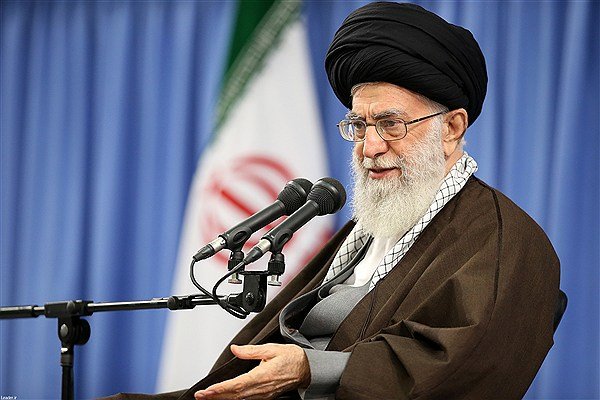Leader outlines elections guidelines, calls for transparency

TEHRAN – Having consulted with the Expediency Council, Supreme Leader of the Islamic Revolution Ayatollah Ali Khamenei has outlined elections guidelines months before the Iranians will take to the ballot box to have their say.
The announcement, carried on the official website of the Supreme Leader on Saturday, is in line with Article 110 of Iran’s Constitution, and consists of 18 paragraphs as follows:
1. Determining constituencies for parliamentary and city council seats in commensurate with population indexes and unavoidable exigencies in such a way that paves the way for maximum electoral justice and people’s understanding of candidates
2. Holding a two-stage parliamentary election if no candidate secures a majority in first round
3. Making sure all candidate benefit from equal share of election ads in TV channels, social media, and all other media outlets and public and state facilities
4. Delimiting the amount and type of expenditures and legitimate and illegitimate sources, making sure of candidates and political groups’ financial transparency and announcing resources used to responsible entities, applying a strict and accurate supervisory mechanism, and clarifying how financial abuses
5. Barring mud-slinging, intimidation, bribery, deception, extrajudicial promises, and such actions as religious and sectarian divisions which are against the national security
6. Preventing candidates and political parties from drawing upon foreigners’ backing and resources from financial and promotional resources
7. Preventing electoral crimes and frauds and any other sort of action which is against law, national interests, unity, and security, and launching urgent and immediate investigation into security, financial, and promotional crimes, particularly destructive actions against candidates
8. Promoting the public’s knowledge and awareness and publicizing electoral norms and institutionalizing them in the public culture, defining regulations for healthy political competition in a bid to increase turnout and informed participation and help the people to select the fittest candidate
9. Determining a framework for political parties and groups and all real entities to act responsibly and legally in elections and in line with the foundations and principles of the Islamic Republic of Iran in such a way that electoral competitions will result in informed participation in elections and trust in the (Islamic) establishment, its stability as well as power
10. Promoting meritocracy and simultaneously paving the way for the election of candidates in league with the Islamic Republic of Iran through:
a) Determining criteria and general and specific candidacy qualifications in line with the Constitution with an emphasis on scientific, physical efficiency, commitment to Islam, the revolution, and the Islamic establishment, the Constitution, commitment to the Velayat Faqih (Guardianship of the Jurist) in particular, and ethical, economic well-being
b) Initial evaluation of candidates during the registration stage via proper legal procedures
c) Accurate vetting of candidates
d) Taking measures to facilitate candidacy of employed candidates
e) Defining and announcing criteria and qualifications so as for the Guardian Council to differentiate political, religious, and tactful candidates
11. The Guardian Council’s supervision over processes, dimensions, and stages of presidential, parliamentary, and Assembly of Experts for Leadership elections, including having the final say in vetting candidates, looking into complains, confirming or rejecting elections, and attracting maximum participation via:
f) Determining transparent, scheduled, and reassuring mechanisms, and paving the way for candidates or their representatives to participate in all stages
g) Providing written explanation on why elections are called annulled as well as on why candidates are denied upon receiving any requests for reconsideration
12. Benefitting from modern technologies to maximize transparency, pace, and authenticity of vote counting and final announcement of voting results
13. Working out a mechanism for candidates to perform their duties in the best way possible, observe their oath of allegiance, and prevent financial, ethical, and economic abuses
14. Relative stability of electoral regulations within the general electoral policies and avoiding changes unless in necessary cases and approval from at least two thirds of lawmakers
15. Making sure of and preserving the freedom and health of elections as well as individuals’ right in lawmaking
16. Barring armed forces, three branches of the government, including ministries and their affiliates, all intelligence and security entities, organizations, state-run companies and public institutes from joining political factions and groups and supporting
candidates
17. Staging presidential, parliamentary, Assembly of Experts for Leadership and city and village council elections by the Interior Ministry
18. Setting a date for elections and making sure there is an interval of nearly two years between elections
Leave a Comment